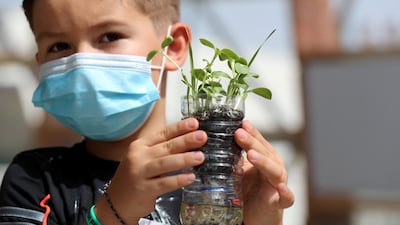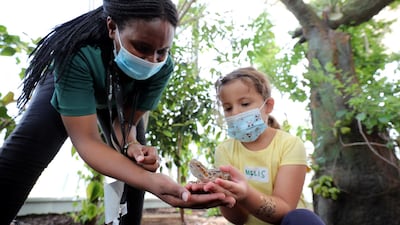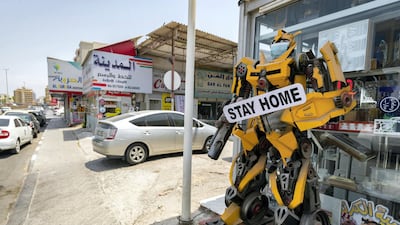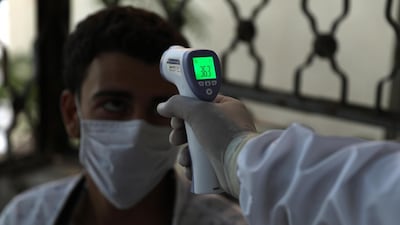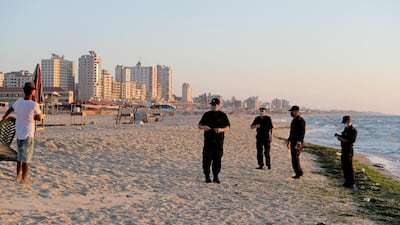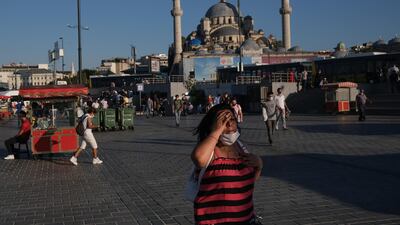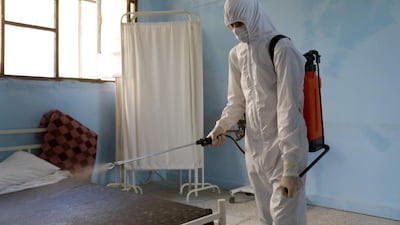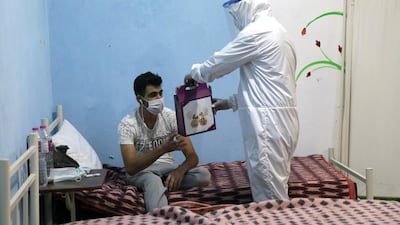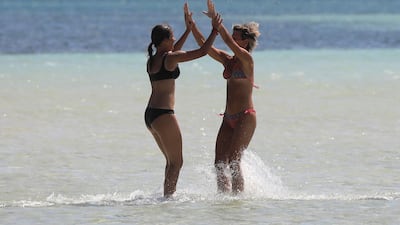Latest: Covid paradox - Why are cases rising but deaths falling?
The UAE and other Gulf nations have been ranked as some of the most effective in the world at tackling the coronavirus pandemic.
Latest analysis of 250 countries and territories puts the Emirates in ninth position in quarantine efficiency, emergency preparedness and other factors.
Neighbouring countries also place highly in the survey, which is published by an organisation called the Deep Knowledge Group and based on tens of thousands of pieces of data.
However, the Covid-19 Regional Safety Assessment highlights a stark regional divide, with many other Middle Eastern nations, including Iran, Lebanon, Syria, Iraq and Yemen, near the bottom of the rankings.
“Together with the other Arab states in the Gulf region, except for Iraq, the UAE is among those with the higher rankings,” the report states.
The survey said the Emirates “holds a leading position in the region now” with “excellent” monitoring and detection of cases, “the best” emergency preparedness and high levels of government efficiency.
A key indicator of the UAE's progress in tackling the disease was a 17 per cent fall in new coronavirus cases between June 1 and August 16 compared to March 17 to June 1 - though there has been a relative rise in recent weeks. The country has had just over 67,000 confirmed cases and fewer than 400 deaths.
Other countries to rank highly include Saudi Arabia (13th), Kuwait (20th), Bahrain, (24th), Qatar (27th), and Oman (29th).
However, other Middle Eastern Arab nations are much further behind: Jordan is 89th, Egypt, 133rd, and Lebanon, 198th, while Syria, Iraq, and Yemen are all placed below 200th.
The survey blames limited governance capacity and difficult political circumstances, among other factors, for these countries’ poor performance.
Professor John Oxford, of Queen Mary, University of London, a co-author of the textbook Human Virology, said political instability has been shown to affect efforts to combat infectious diseases.
“Countries with stable government and stable everything else are potentially on their way [to recovery] quite quickly,” he said.
“It was first exemplified by smallpox eradication campaigns more than 50 years ago.”
With smallpox, he said eradication efforts were upturned by political instability in “a number of countries”, something likely to be compromising efforts to combat the coronavirus in parts of the Middle East.
Globally, the top of the survey is dominated by developed nations, with Germany, New Zealand, South Korea, Switzerland and Japan heading the list. As well as the UAE, also in the top 10 are Australia, China, Austria and Singapore.
Europe comes out as the best region overall in its response to the pandemic, followed by the Middle East, North America, Asia Pacific, Latin America and Africa.
Prof Oxford said problems as basic as a lack of clean water could be hampering anti-coronavirus efforts in Africa, since many villages lack basic services.
“There’s no good telling people to wash their hands if there’s no water around,” he said, adding nations struggle if they “haven’t got the infrastructure to cope with this”.
The study said the greatest threat of a second wave of infections was in Asia, where there was a four-fold increase in total cases since June 1, with Japan, the Philippines and India showing particular growth.
Based on more than 140 parameters, the DKG survey uses publicly available databases and information from internet searches, government reports and the media to give nations a score in six parameters, including healthcare readiness, government efficiency, monitoring and detection, and regional resilience, which were added to give the overall ranking.
The UAE’s score was 723.36, which compares to 762.64 for Germany in first place, and 312.93 for Western Sahara in 253rd and last place.
DKG, which describes itself as a consortium of commercial and non-profit technology organisations, said it consulted experts when data was not available.
The UAE was ranked highly in previous DKG surveys, coming 10th in a report released in late July, and 11th in one from early June.
World Health Organisation figures indicate there have been more than 23 million confirmed Covid-19 cases worldwide, and more than 800,000 deaths.
The increase in weekly cases globally began to level off in late July, according to WHO data, although that increase partly reflected improvements in testing capacity, with the number of deaths having peaked in April.
